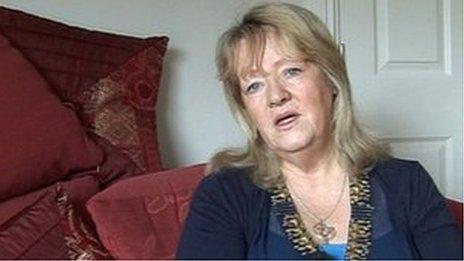Magdalene Laundries victim Mary Cavner to get compensation
- Published
Mary Cavner went back to Cork last year to see the ruins of the laundry she worked at
A woman denied an education and left malnourished after being forced to work at the age of 11 when her father died has won a battle for compensation.
Mary Cavner, 80, who lives in Hampshire but grew up in County Cork, was sent to work in one of Ireland's notorious Catholic-run Magdalene Laundries.
She said her six years at the workhouse affected her "throughout her life".
She was initially told she was ineligible for compensation but will now receive €76,000 (£69,500).
The Magdalene Laundries, which were initially institutions for what were described as "fallen women", saw 10,000 young females pass through them between 1922 and 1996.
The women and girls toiled behind locked doors, were unable to leave after being admitted and received no wages.
In 2013, then Irish Prime Minister (Taoiseach), Enda Kenny, formally apologised on behalf of the state for its role in the scandal.
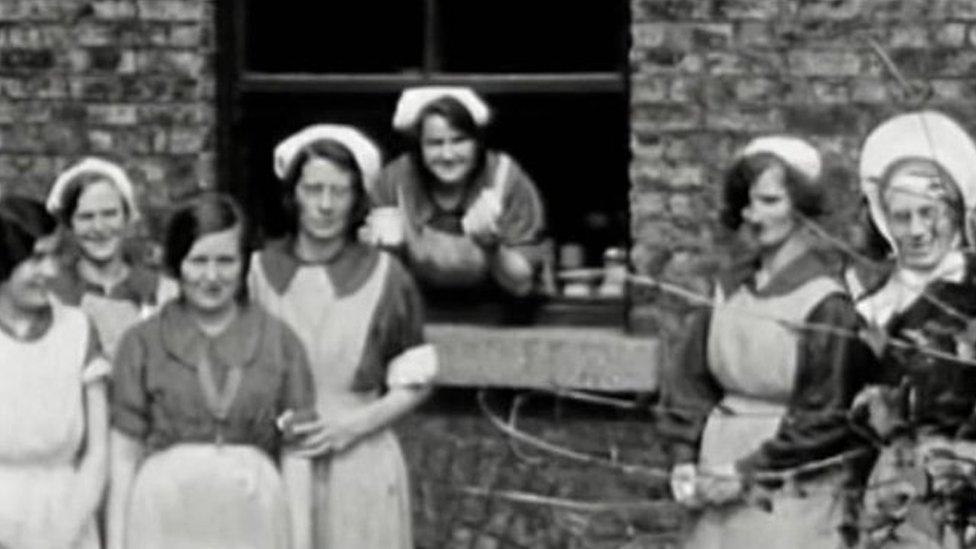
For decades thousands of women were forced to work in the Republic of Ireland's Magdalene laundries
Mrs Cavner, a mother-of-five, was initially denied compensation and the payout comes almost 70 years after she was first placed in the Good Shepherd Convent in Sunday's Well, County Cork.
She was separated from her siblings and despite only being 11 when she arrived, she received no teaching from the nuns and experienced long-term hunger while working into the night looking after babies, cleaning, working in the laundries and preparing meals for the nuns.
"They held me there and worked me until I was nearly 18," said Mrs Cavner, who now lives in New Milton.
"We weren't allowed to talk or associate with anybody else."
Mary Cavner said she was initially told she would not receive compensation
The Irish government said 770 former residents of the laundries have so far been awarded more than €29.8m (£27.32m) in compensation.
However, Mrs Cavner said she was told by the authorities she would not receive compensation because the laundry she worked in was not eligible under the government's redress scheme.
A lengthy legal battle ensued and she complained to the Irish ombudsman, which went on to recommend that the redress scheme be extended., external
"I had never mentioned what happened to me to my husband or my children, so it took all of my courage to admit what I had been through and then they called me a liar," Mrs Cavner said.
"My experience in the laundry left me unable to communicate properly.
"I have had really low points as they have made me live this again and to be accused of not telling the truth made me feel rejected."

What were the Magdalene laundries?
• Originally termed Magdalene Asylums, the first in Ireland was opened in Dublin in 1765
• Envisaged as short-term refuges for "fallen women" they became long-term institutions and residents were required to work, mostly in laundries on the premises
• They extended to take in unmarried mothers, women with learning difficulties and girls who had been abused
• The last Magdalene asylum in Ireland, in Waterford, closed in 1996

The Irish Department of Justice and Equality awarded Mrs Cavner a lump sum of €50,000 (£45,800) and a further €26,000 (£23,800) which will be given to her in incremental payments in the future.
She said receiving the payment was "bittersweet" and her fight was "never about getting compensation" but to "hold those who made me stay in the laundry to account".
A spokesman for the Irish Department of Justice and Equality said the government "recognises the sensitive nature of these cases" but could not comment on Mrs Cavner's specific circumstances.
- Published21 January 2019
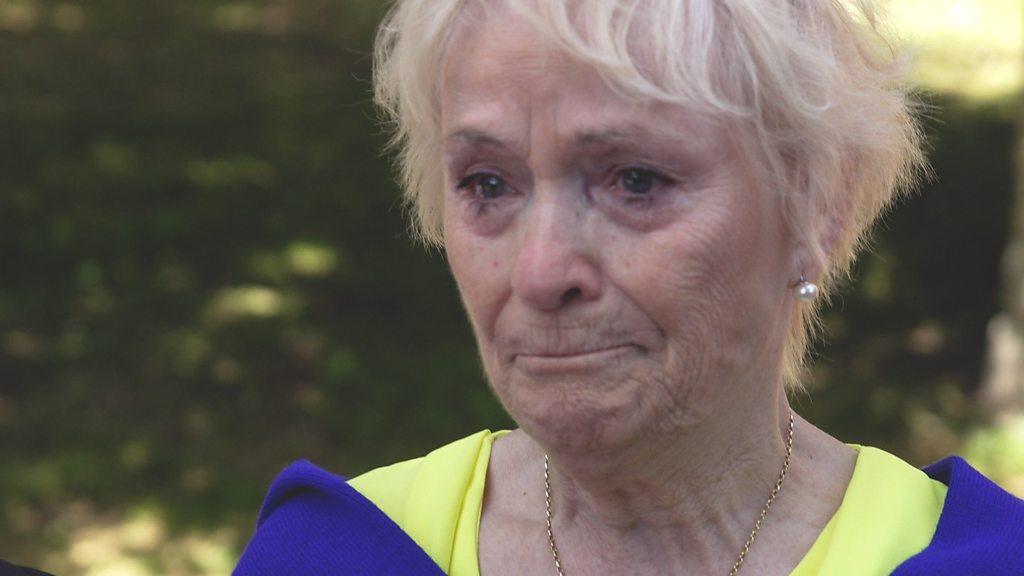
- Published6 June 2018
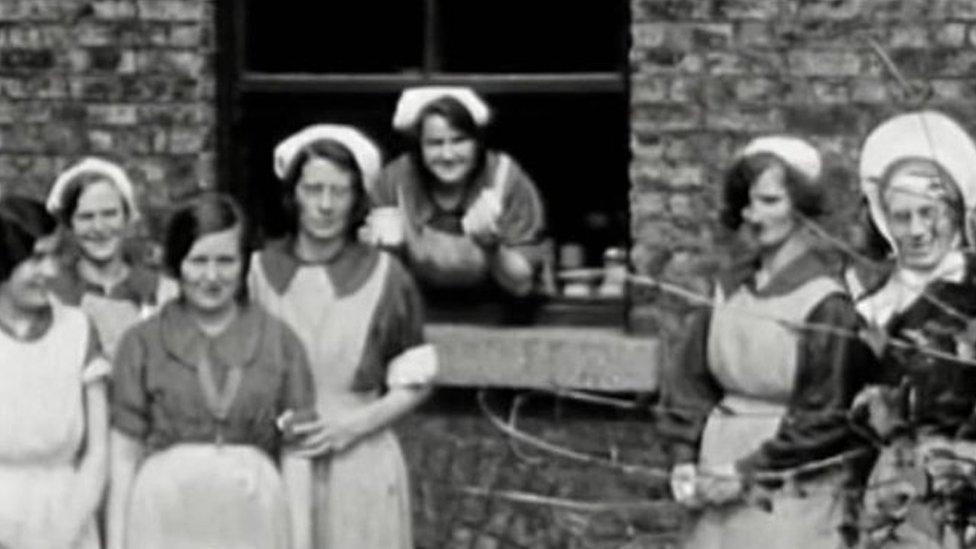
- Published2 June 2018

- Published26 June 2013
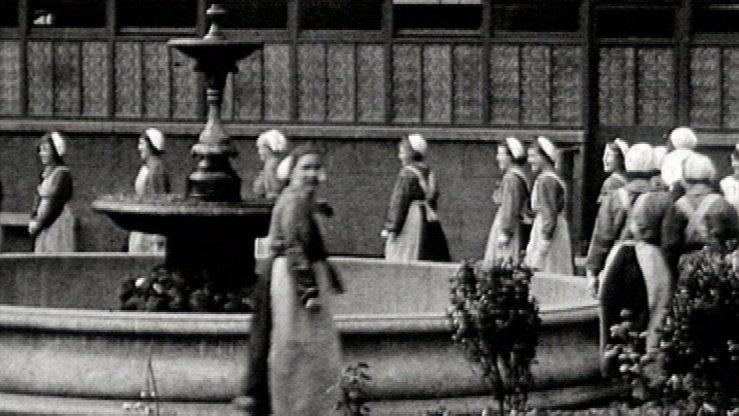
- Published19 February 2013

- Published5 February 2013
